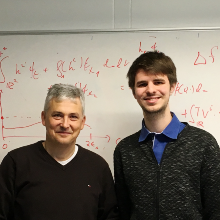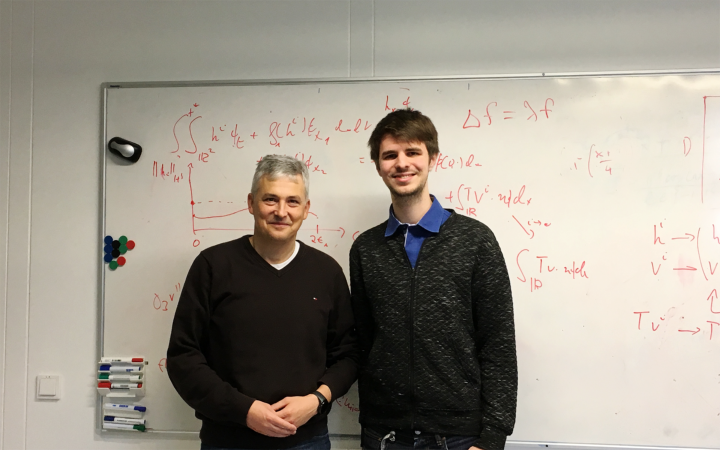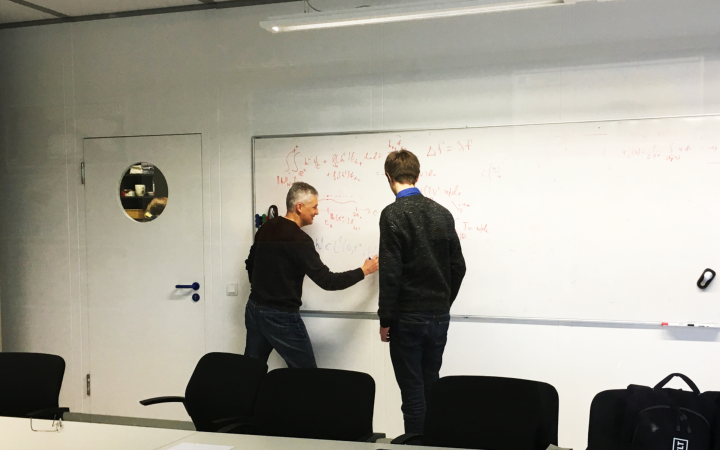Sorin Pop, professor at Hasselt University and co-investigator of SFB 1313 research project C02, has been our guest. On November 5, he participated in Lars von Wolff’s milestone presentation, whom he is supervising. On this occasion, Lars von Wolff had the great pleasure to interview him.
In the interview, we get to know about Sorin Pop's academic steps in the past, about why he is working in the field of porous media research, about his favorite numerical scheme and he tells us as well what's so important about collaborative research projects such as SFB 1313.
About Sorin Pop
Sorin Pop studied informatics at the Faculty of Mathematics and Computer Science of the Babes-Bolyai University in Cluj-Napoca (Romania) and went to the University of Heidelberg (Germany), where he worked as a doctoral researcher together with Prof. Willi Jäger. In 1998 he finished his Ph'D degree in Mathematics at the Babes-Bolyai University with his thesis "Regularization Methods in the Numerical Analysis of Some Degenerate Parabolic Equations". From 2000 to 2015 he worked in the Department of Mathematics and Computer Science at the Eindhoven University of Technology (Netherlands), before he moved to the University of Hasselt (Belgium), where he is a professor in the Discipline group Mathematics and statistics. In between, he got a part-time appointment at the University of Bergen (Norway), at the Department of Mathematics – a so-called Professor II appointment –, which still goes on.
Research interest
1) Partial differential equations:
- Analysis: existence, uniqueness of weak solutions, qualitative properties, travelling waves
- Upscaling: homogenization, multiple scales, asymptotic expansions, heterogeneous media, perforated media, rough boundaries
- Numerical methods: convergence, error estimates, discretization (FEM/MFEM/DG, finite volumes), linearization schemes, domain decomposition
2) Applications:
- Flow in porous media: unsaturated, two-phase, non-standard models, dynamic capillarity
- Reactive transport: adsorption, desorption, reactions, precipitation, dissolution
- Media with variable porosity
- Biofilm growth
- Geothermal energy




